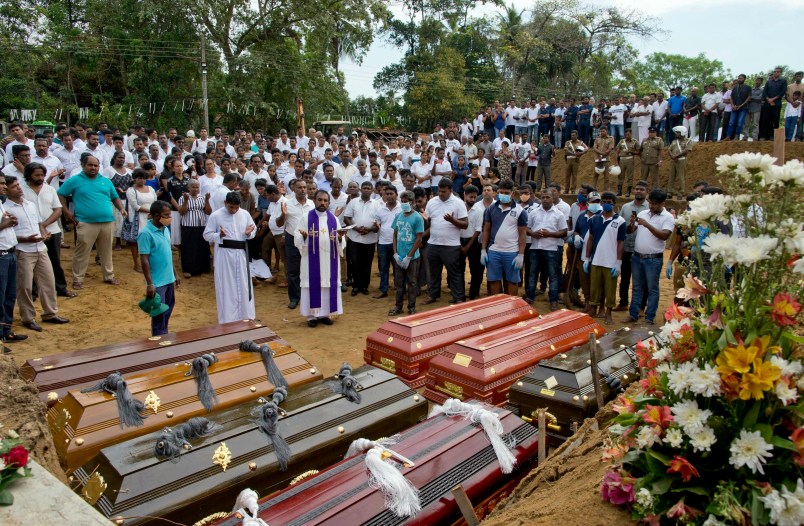GENEVA (AP) — Declaring that the Zika virus is “spreading explosively,” the World Health Organization announced it will hold an emergency meeting of independent experts Monday to decide if the outbreak should be declared an international health emergency.
At a special meeting Thursday in Geneva, WHO Director-General Dr. Margaret Chan said the virus — which has been linked to birth defects and neurological problems — was becoming much more of a threat. One WHO scientist said the Americas could see up to 4 million cases of Zika in the next year.
Chan said although there was no definitive proof that the Zika virus was responsible for a spike in the number of babies being born with abnormally small heads in Brazil, “the level of alarm is extremely high.” She also noted a possible relationship between Zika infections and Guillain-Barre syndrome, which can cause temporary paralysis.
“The possible links, only recently suspected, have rapidly changed the risk profile of Zika from a mild threat to one of alarming proportions. The increased incidence of microcephaly is particularly alarming, as it places a heart-breaking burden on families and communities,” Chan said.
The Zika virus was first detected in 1947 and for decades only caused mild disease, but Chan noted that “the situation today is dramatically different.” According to the U.S. Centers for Disease Control, the Zika virus is now in more than 20 countries, mostly in Central and South America. It is spread by the same mosquito that spreads dengue and yellow fever.
Earlier this month, the CDC said pregnant women should consider postponing trips to more than a dozen countries with Zika and advised women trying to get pregnant or thinking of getting pregnant to speak to their doctor before traveling and to take extra precautions to avoid mosquito bites.
Sylvain Aldighieri, head of WHO’s epidemic response team in the Americas, estimated there could be 3 to 4 million Zika infections in the region over the next year. He said the agency expects “huge numbers” of infections because of the widespread presence of the Aedes mosquitoes that spread Zika and because people in the region have no natural immunity.
WHO also warned China and all other countries that have dengue fever to be on the lookout for Zika infections. The agency said it could be many years before a vaccine is available.
Chan cited four main reasons why WHO was “deeply concerned” about Zika: The possible link to birth defects and brain syndromes, the prospect of further spread, a lack of immunity among people living in the newly affected areas and the absence of vaccines, treatments or quick diagnostic tests for the virus.
The U.N. health agency called the special session in part to convey its concern about an illness that has sown fear among many would-be mothers, who have responded by covering themselves head-to-toe in clothing in largely tropical Brazil or putting on many coats of insect repellent.
Declaring a global emergency is akin to an international SOS signal and usually brings more money and action to address an outbreak. The last such emergency was announced for the devastating 2014 Ebola outbreak in West Africa, which eventually ending up killing over 11,000 people. Polio was declared a similar emergency the year before.
Still, convening an emergency committee does not guarantee that a global emergency will be declared — WHO has held 10 such meetings to assess the Middle Eastern respiratory syndrome coronavirus and no emergency has been announced.
One reason why WHO is examining the Zika virus so quickly may be because the agency was criticized for its slow response to Ebola; nearly 1,000 people had died before WHO declared it to be an international emergency. The Associated Press found that senior agency officials resisted the Ebola declaration for two months, citing political and economic reasons.
Marcos Espinal, WHO’s director of infectious diseases in the Americas region, said Brazil is conducting studies to determine if there is scientific evidence that Zika virus causes birth defects and neurological problems. He said they are hopeful Brazil may have data to share in a couple of months.
Brazil’s Zika outbreak and the spike in microcephaly cases among babies have been concentrated in the poor and underdeveloped northeast of the country, though the prosperous southeast, where Sao Paulo and Rio de Janeiro are located, is the second hardest-hit region. Rio de Janeiro is of special concern, since it will host the Aug. 5-21 Summer Olympic games that are expected to be attended by millions from around the world.
Earlier this week, officials in Rio ramped up their fight against the mosquitoes that spread Zika, dispatching fumigators to the Sambadrome, where the city’s Carnival parades will take place next month.
There is no specific treatment or vaccine for Zika, which is related to dengue. Scientists have struggled for years to develop a dengue vaccine; the first such shot made by Sanofi Pasteur was licensed last year in Brazil.
Still, in Washington, a leading U.S. health official said Thursday that he doubts the United States is vulnerable to a widespread outbreak of the virus. Dr. Anthony Fauci said hopefully the Zika virus can be kept at bay with “mosquito vector control.”
___
Cheng reported from London.
Copyright 2016 The Associated Press. All rights reserved. This material may not be published, broadcast, rewritten or redistributed.






